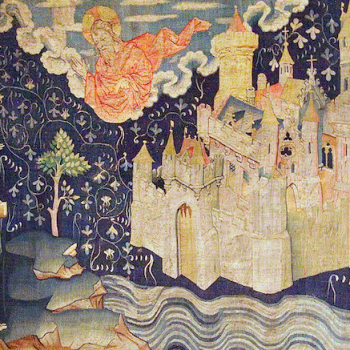When Jesus claimed to teach on the authority of God, he thus circumvented centuries of rabbinic tradition. Of course the rabbis, firm believers in the authenticity of their traditions, rejected these claims, especially when Jesus' teachings contradicted theirs.
Jesus challenged his critics by claiming that if they truly wanted to do the will of God, they would know that his teachings were from God (7:17). He also accused them of not keeping the Law of Moses because they sought to kill him for breaking the Sabbath by healing a man (7:19-23), an allusion to the earlier healing at Bethesda (Jn. 5:1-16). This agitated the crowd against the Jewish leaders, leading to the next confrontation (Jn. 7:25-52), which I will discuss next week.
Another accusation arose during this discussion. The critics claimed that Jesus was possessed by, or in league with demons, a common claim in the Gospels (Jn. 7:20, 8:48, 52, 10:20; Mt. 9:34, 12:24; Mk. 3:22; Lk. 11:15). There are two aspects to this accusation. The first is that Jesus performed his signs and miracles through demonic rather than divine agency. Second, possession by a demon was believed to cause madness and irrational behavior. The accusation of demon possession was thus a means by which his critics could account for both Jesus' seemingly eccentric behavior and teachings, and his miracles. These types of explanations, coupled with accusations of performing miracles by magic, formed a staple of both Jewish and Pagan anti-Christian responses both during the lifetime of Jesus and in subsequent centuries.
A full version of this column, with extensive references and notes, can be found at DropBox:
http://dl.dropbox.com/u/15865520/Enigmatic%20Mirror/EM-John%207a.pdf
And Academia.edu:
http://byu.academia.edu/WilliamHamblin/Papers/551727/John_7_1-24
Updates and discussion can be followed on Facebook at:
http://www.facebook.com/pages/An-Enigmatic-Mirror/180889785272535





